Judiciary summons 100 Iranians accused of promoting election boycott
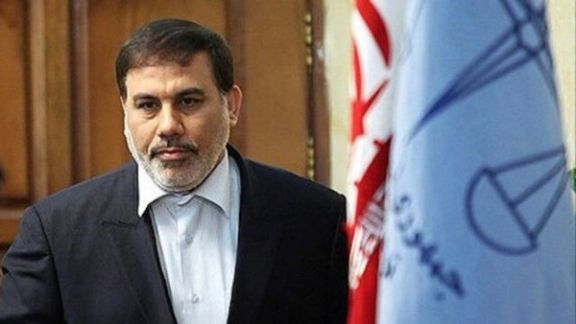
Iran's judiciary has summoned 100 people, with cases against two Telegram channels and 500 Instagram accounts, for promoting a boycott of Iran's presidential polls.

Iran's judiciary has summoned 100 people, with cases against two Telegram channels and 500 Instagram accounts, for promoting a boycott of Iran's presidential polls.
On Tuesday, the spokesman of the judiciary, Asghar Jahangir, said those facing legal action "tried to discourage people from participating in the elections."
Ahead of the recent presidential election, the Press Supervisory Board had warned that "publishing and promoting election boycott symbols" constitutes criminal content and does not require a complainant.
It allowed the public prosecutor independently, or based on the Criminal Content Determination Task Force's findings, to file charges against individuals and media deemed "violators."
Jahangir added, "In total, 3,980 people who committed electoral violations were given legal guidance and warnings. One hundred individuals were summoned and given necessary warnings to prevent continued illegal behavior."
He also reported the arrest of 113 individuals, whom he termed "criminals," in the runoff race of the presidential election, but mentioned that "most of them were released on the same day after giving commitments, providing bail, and appropriate guarantees."
Following the sudden death of former Iranian President Ebrahim Raisi and his entourage in a helicopter crash in May, a snap election was called. After his death, the judiciary also arrested or summoned several citizens for their celebratory reactions to the incident.
During the election campaign, the judiciary filed charges against two media outlets, Hashiyeh News and Bamdad-e-No, for their election coverage and what it called "spreading false news about the elections."
Official figures from the elections showed a turnout of 49.8 percent of eligible voters cast their ballots.
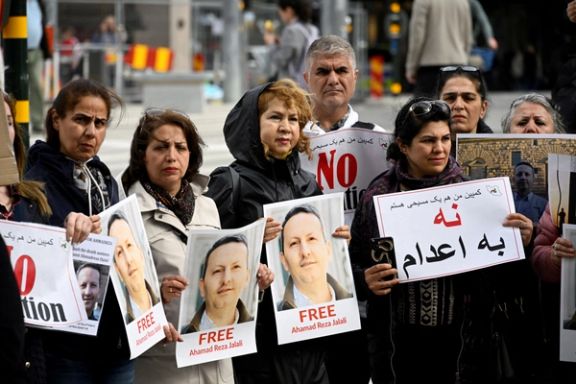
Amnesty International has issued a warning that Swedish-Iranian academic Ahmadreza Jalali, who has been detained in Iran for more than eight years, is at imminent risk of execution following the exhaustion of all legal options to reverse his death sentence.
“Iranian authorities must quash Ahmadreza Jalali’s conviction and death sentence, imposed following grossly unfair trial proceedings, and release him immediately,” the rights group stated on Monday.
“He has heart arrhythmia, anemia, and high blood pressure, for which he has been denied timely and adequate access to health care,” Amnesty's statement further added.
A source close to Jalali's inside the country told Iran International that his execution is imminent.
Jalali's health has worsened after he undertook a hunger strike from June 26 to July 4 to protest his ongoing arbitrary detention, despite a prisoner swap between Iran and Sweden on June 15.
As part of the Stockholm-Tehran accord in June, two Swedish nationals, Johan Floderus, and Saeed Azizi, were exchanged for Hamid Nouri, a former Iranian prison official. Nouri was serving a life sentence in Sweden for his involvement in the mass executions of political prisoners in Iran in 1988.
Swedish authorities asserted that Iran declined to negotiate Jalali’s release within the framework of this agreement.
The release of Nouri to Iran had already sparked backlash among Iranians. Criticism of Sweden's deal with Iran intensified further upon learning that Jalali was left behind.
Political activists condemned the Swedish government's actions as "dangerous". They warned of their "far-reaching consequences," emphasizing that they reinforce Iran's policy of diplomatic hostage-taking, which has led to the imprisonment of numerous dual nationals in Iran.
Last year, the release of five American-Iranians in exchange for the unfreezing of $6 billion in Iranian funds faced similar criticism from rights organizations, who argued that it supported Iran's blatant hostage-taking agenda.
Jalali has criticized the Swedish government's decision to exclude him from the deal as "discriminatory." He has urged the Swedish prime minister to publicly meet with his son and family to clarify why he was left behind and to outline the measures that would be taken on their behalf in the event of his execution.
Jalali, a disaster medicine specialist, was arrested in Tehran in April 2016 and sentenced to death in October 2017 for “corruption on earth” (efsad-e fel-arz) following what has been described as a grossly unfair and arbitrary trial before an Islamic Revolutionary Court.
The court's verdict primarily relied on “confessions” that Jalali asserted were obtained under torture and other ill-treatment during his prolonged solitary confinement, where he was also denied access to legal counsel.
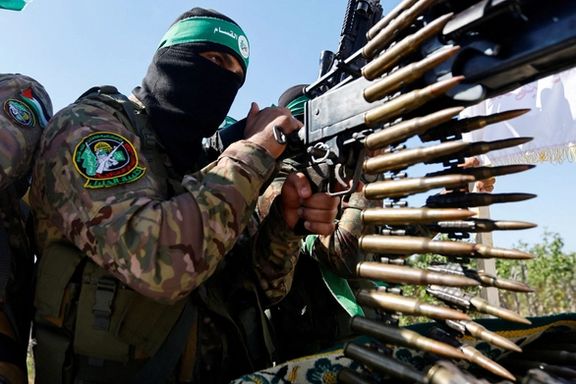
The US Justice Department has been conducting interviews with survivors and families affected by Hamas’ October 7 attack in Israel to build a case against the militant group and its financial supporters, according to Bloomberg.
The report, citing people familiar with the investigation, also says that former hostages and families of US citizens murdered abroad have sat down with prosecutors and FBI agents.
Some have reportedly traveled from Israel and provided videos and text messages to help the authorities build a timeline of the attack and to identify those who carried out the kidnappings.
Citing people familiar with the inquiry, Bloomberg reports that although part of the US probe is looking at acts of terrorism, a broader focus is tackling the financial networks that have propped up Hamas.
This will see prosecutors from US Attorneys’ offices in New York, Washington and the Justice Department’s Counterterrorism Section to investigate any support from countries like Iran and Qatar, which are among the primary financial backers of the terrorist organization.
The inquiry will also reportedly look at whether financing touched US financial institutions or assets.
Last year, Hamas gunmen launched a deadly assault across Gaza's border into Israel, resulting in approximately 1,200 deaths and the firing of thousands of rockets. The victims included children, the elderly, and 364 young attendees of a music festival. Additionally, Hamas abducted over 250 individuals, holding them hostage in Gaza.
The BBC and the Guardian have reported that they have accessed evidence showing instances of rape and sexual assaults during the Hamas attacks. A UN report in March found “reasonable grounds to believe” that Hamas committed sexual violence “in multiple locations” during the attack.
Officials in Tehran have stated that they received no prior warning of the attack carried out by their proxy, with US intelligence indicating that senior Iranian government officials were taken by surprise by the assault. However, almost immediately after the attack, government backed celebrations took place in Tehran and officials and state media have been praising Hamas and pledging continued support.
In October 2023, the Wall Street Journal reported that Iranian security officials helped plan the attack on Israel and gave the green light for the assault at a meeting in Beirut. It also reported later that month that Hamas fighters trained in Iran before the attack.
Easter this month, more than 100 victims and relatives of victims of the Hamas attack sued Iran, Syria and North Korea for $4 billion, accusing the countries of providing Hamas support.
The lawsuit filed in federal court in Washington, DC, by the Anti-Defamation League is the largest case against foreign countries in connection with the attack, and the first backed by a Jewish organization, the ADL said in a press release.
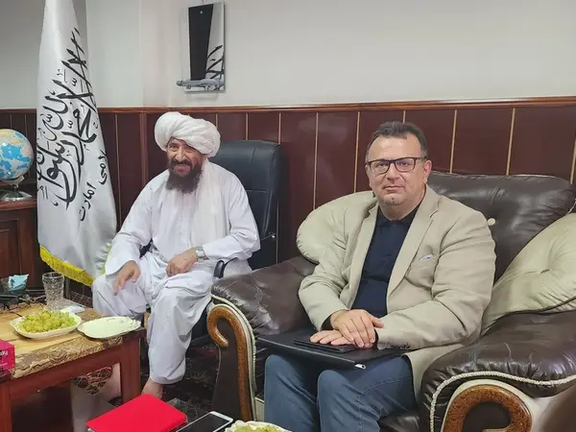
The Taliban have declared a senior Iranian diplomat "persona non grata", giving him only a few hours to leave Afghanistan, informed sources told Afghanistan International.
The Taliban say Ali Mojani, an advisor to Iran's special representative for Afghan affairs, has "overstepped his boundaries" and must leave Afghanistan immediately, the sources said.
Sources told Afghanistan International that the move is a response to Iran's expulsion of a Taliban diplomat from Mashhad last December. Salim, the Taliban diplomat, was expelled after beating up and torturing an Iranian photographer at the Afghan consulate in Mashhad.
Mojani had recently stated that Taliban members did not allow him to perform Eid al-Adha prayers led by Mullah Hibatullah, the Taliban leader, at Eidgah mosque in Kandahar.
He said he had previously sent an official letter to the Taliban's Ministry of Foreign Affairs to participate in the Eid prayers, but the Ministry did not adhere to diplomatic protocols and did not respond to his official request.
Tensions persist between Iran and the Taliban, particularly regarding water issues.
In January, the Taliban's foreign minister, Amir Khan Muttaqi, visited Iran and advocated for increased economic collaboration. Muttaqi met with economic activists from Iran and Afghanistan, urging Iranian traders to capitalize on opportunities in the Afghan market.
Nevertheless, critics within Iran have raised concerns about the government's open borders policy, speculating about potential hidden agendas. Some suggest that authorities might be facilitating illegal Afghan immigration to address population decline or to strengthen the military by recruiting young Shiite Hazara Afghans.
Iran's former Foreign Minister Mohammad Javad Zarif, who is expected to serve as a top advisor or cabinet member in the government of president-elect Masoud Pezeshkian, recently said the Taliban's legitimacy remains in question in spite of their ruling neighboring Afghanistan.
In an interview in March, Zarif said the question of the Taliban's legitimacy in Afghanistan remains a highly debated issue both domestically and internationally. He added that “if Iran remains passive in the face of regional dynamics involving the United States, Russia, China, and Pakistan, the matter of Taliban legitimacy could escalate into both an opportunity and a threat for the Islamic Republic.”

Iran’s Deputy Minister of Health announced 63 new cases of dengue fever, stressing that it is currently the country's most critical health issue.
On Tuesday, Saeed Karimi said that most patients are travelers from the Persian Gulf countries with seven provinces affected.
Last week, Iran’s Ministry of Health reported 138 cases of dengue fever identified over the past two months and warned of a potential outbreak in September and October. In June, the ministry also announced three deaths.
Iran is already facing a critical shortage of doctors and nurses in the healthcare system now battered by the country's economic crisis.
The first reported case of dengue fever in Iran occurred in 2008 in a patient who had traveled to Malaysia.
The World Health Organization (WHO) says dengue, or break-bone fever, is a virus spread by mosquitoes, common in tropical and subtropical areas. Most people don't show symptoms, but those who do may experience high fever, headache, body aches, nausea, and rash, usually recovering in 1-2 weeks. Severe cases can be fatal and need hospital care.
According to WHO, the incidence of dengue has dramatically increased globally, with cases rising from 505,430 in 2000 to 5.2 million in 2019. Many cases are under-reported or misdiagnosed as other febrile illnesses.
The highest number of cases was recorded in 2023, with over 6.5 million cases and 7300 deaths affecting over 80 countries.
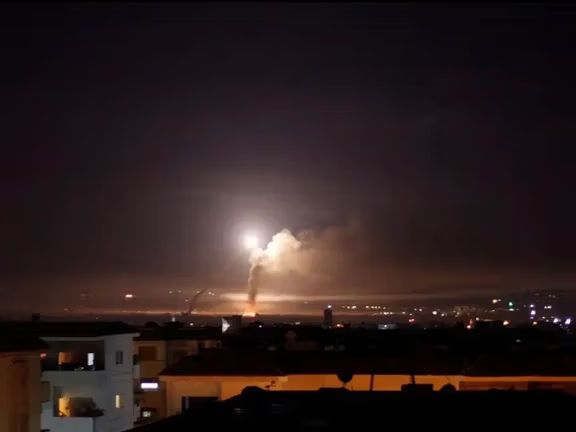
Syria's news agency says an Israeli airstrike in Baniyas, western Syria was launched in the early hours of Tuesday morning, coinciding with the arrival of two Iranian ships at the port of Latakia.
SANA reported that the strike occurred just after midnight Monday, targeting a position near the coastal city of Baniyas, resulting in material damage.
The Syrian Observatory for Human Rights (SOHR), a UK-based NGO with extensive sources in Syria, said it is the third Israeli attack on Baniyas this year.
The organization noted the presence of Iranian military advisors in the targeted area and added that two missiles hit coastal buildings, including one linked to air defense, causing a significant fire.
Additionally, two individuals believed to be members of the Lebanese Hezbollah were killed and a Syrian driver seriously injured in a drone attack on a car near a military checkpoint on the Damascus-Beirut highway.
The vehicle, belonging to Hezbollah, Iran's largest and most powerful proxy, was completely incinerated, with the victims' bodies charred inside, reported the SOHR.
The attack, carried out from the Mediterranean Sea, adds to the stream of Israeli operations since the Syrian civil war began in 2011. The attacks have primarily targeted Bashar al-Assad's forces and positions held by groups supported by Iran. Despite the frequency of the assaults, Israel has rarely issued comments.
It also comes as Israel is fighting Hezbollah on its northern border. Since the Gaza war broke out on October 7, over 3,400 projectiles have been launched by the terror group towards Israel in allegiance with Iran-backed Hamas in Gaza.
In April, an alleged Israeli strike on the Iranian consulate in Damascus resulted in the death of Mohammad Reza Zahedi, a high-ranking Quds Force commander and several other IRGC officers. In retaliation, the Islamic Republic launched a barrage of missiles and drones toward Israel.
Israeli officials, despite their usual silence on such operations, have consistently declared their determination to prevent Iran from expanding its foothold in Syria.